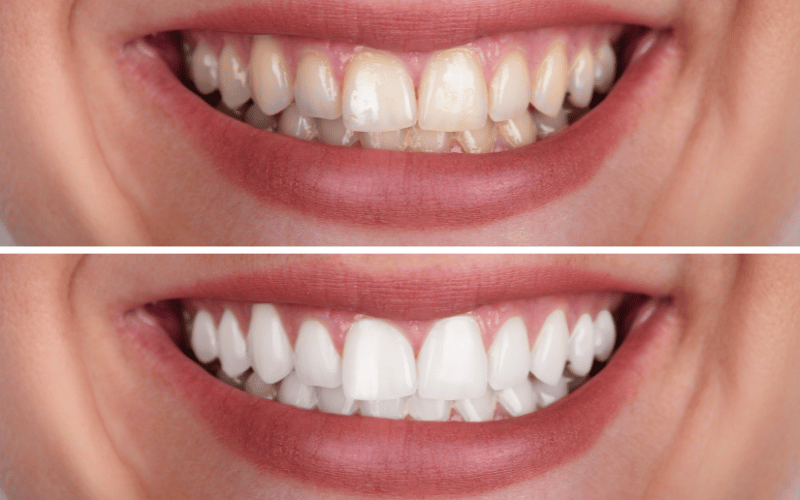Teeth whitening has become popular as individuals seek brighter smiles for enhanced confidence and aesthetics. This cosmetic procedure offers effective results, often boosting self-esteem and social appeal. However, despite its allure, teeth whitening has potential side effects that should be considered.
While these effects are usually mild and temporary, individuals must weigh the benefits against potential risks before undergoing whitening treatments. Overall, pursuing a dazzling smile through whitening requires informed consideration of its benefits and drawbacks.
Common Side Effects of Teeth Whitening
1. Tooth Sensitivity: Whitening treatments can temporarily increase tooth sensitivity to hot, cold, or pressure stimuli.
2. Gum Irritation: Some individuals may experience irritation or inflammation of the gums during or after whitening procedures.
3. Temporary Discomfort: Teeth whitening may cause temporary discomfort or soreness in the teeth and gums, particularly after treatment sessions.
4. Uneven Whitening: In some cases, teeth may not whiten uniformly, leading to uneven results across the teeth.
5. Increased Risk of Decay: Excessive or frequent whitening treatments can potentially weaken tooth enamel, increasing the risk of dental decay over time.
Tips to Minimizing the Side Effects of Teeth Whitening
1. Use Desensitizing Toothpaste: Before and after whitening treatments, use desensitizing toothpaste containing potassium nitrate to help reduce tooth sensitivity.
2. Follow Instructions Carefully: Adhere strictly to the instructions provided by your dentist or the whitening product manufacturer to prevent overuse and minimize potential side effects.
3. Avoid Whitening Too Frequently: Space out whitening treatments to recover your teeth and gums, reducing the risk of irritation and sensitivity.
4. Use Custom-Fit Trays: If using at-home whitening kits, opt for custom-fit trays made by your dentist to ensure even application and minimize contact with gums, reducing irritation.
5. Consult Your Dentist: Before beginning any whitening treatment, consult your dentist to evaluate your oral health and receive personalized recommendations for minimizing side effects.
Final Words!
When done correctly, teeth whitening can undoubtedly enhance smiles and boost confidence. Despite the potential for side effects, the risks can be significantly minimized with proper precautions and guidance, such as using desensitizing toothpaste, following instructions diligently, and spacing out treatments.
However, it’s crucial to stress the importance of consulting a dentist before embarking on any whitening regimen. A dental professional can assess your oral health, provide personalized recommendations, and ensure the chosen whitening method is safe and effective. Individuals can achieve brighter smiles by taking these steps while safeguarding their dental well-being.


